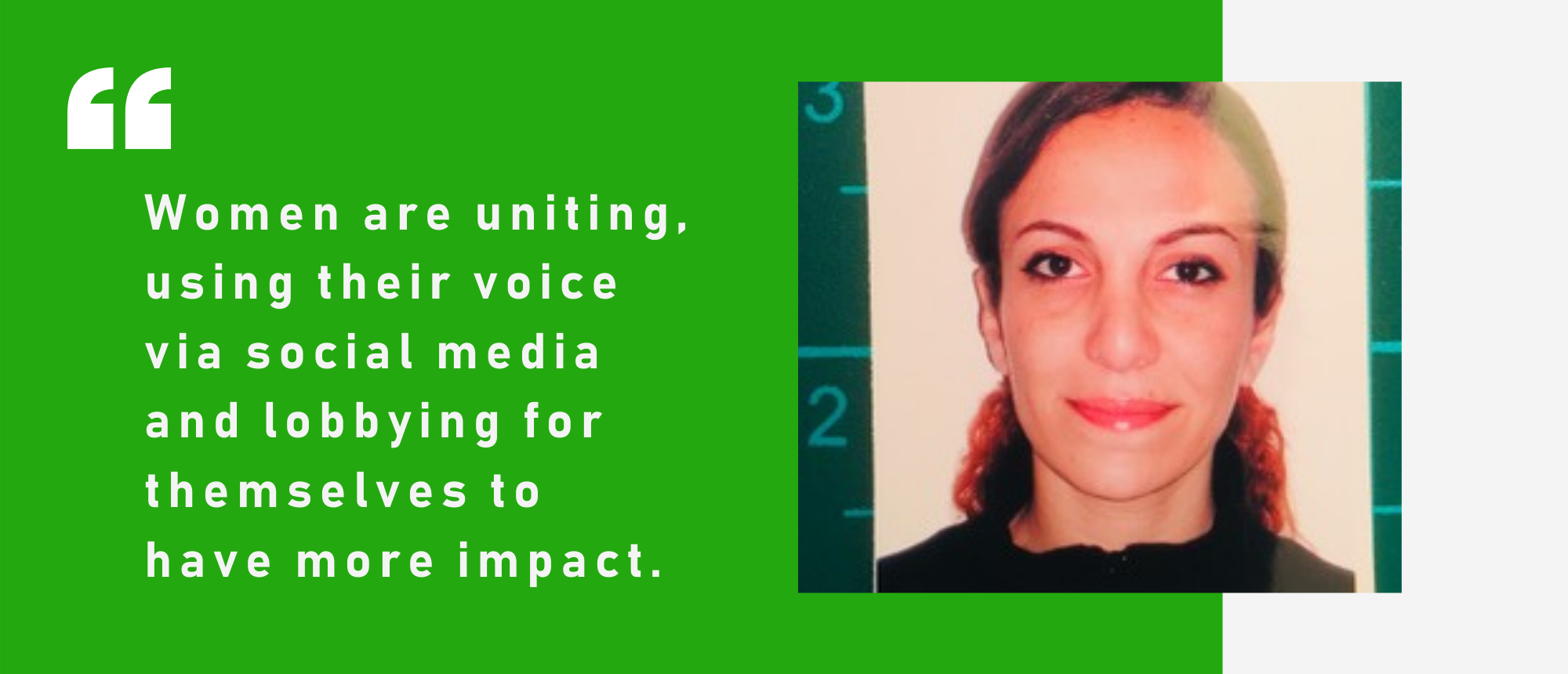Interview with Adessa Tawk
Interview with Adessa Tawk
Adessa Tawk is a consult and trainer with extensive experience in the Middle East/ North Africa region with multinational companies in various industries, as well as with NGOs. In 2009 she set up her own firm Advantedge Consulting and Training based in Beirut, Lebanon. Her expertise is in project planning and management, consultancy in change management, human resource policy and gender diversity and educational trainings in the field of entrepreneurship, leadership and motivating and empowering women and youth. She has organized several leadership and assertiveness trainings for women and youth.
She is an Australian national with Lebanese roots. As a young girl she was inspired by strong female role models within her family and had a lot of admiration for them. She grew up in Australia and followed education there. When she was in Lebanon to go back to her roots, she saw the difference in role perspectives:
"I grew up with a different perspective on roles than my Lebanese male cousins. They had to ask their mom to do the washes at the age of 25."
She noticed that many women in this region have proper education but are not able to pursue a professional career the same way men do. Within universities there is a good balance of male-female students, but in professional life there is a clear gap. This gap can be attributed for a large part to a lack of facilities, for example regarding maternity leave, but also to traditional gender roles.
Adessa does see change is happening now. “Women are uniting, using their voice via social media and lobbying for themselves to have more impact.” All over the Middle East people are becoming more aware of gender equality and the position of women. In Lebanon, some laws are currently under revision. For example, laws regarding domestic violence that enable men to get off lightly and laws that prevent a woman from giving her children the Lebanese nationality should she marry a foreigner. Revisioning these laws will positively impact the position of women. Also, financial institutions like banks and microfinance firms are redesigning the loan process so that women do not need approval from men. These recent changes have already led to more female entrepreneurs with small businesses.
Via projects where Adessa was involved in she saw women in refugee camps that had lost their husbands. These women were often eager to learn and follow trainings in catering skills so that they were able to turn from victims/ refugees into empowered women that could support their families.
However, more changes are needed. In rules and regulations regarding child custody, for example. Currently, in the case of a divorce, children under the age of six will automatically go to the father. This is, in most cases, not in the best interest of the children. There are also more facilities and more suitable policies needed for women regarding maternity leave, equal pay and other work-related conditions. However, not only policy and legislation, but also diverse religious traditions and rules influence gender equality. Therefore, the path towards changes and gender equality will be long.
Adessa strongly believes that the results of improving gender equality will be visible in the long run and have a positive impact on people’s daily lives. She believes in a society without strict separation of roles and activities where any person is able to choose their professional path to follow:
"Where not only sons can have career goals in life, but daughters too."

